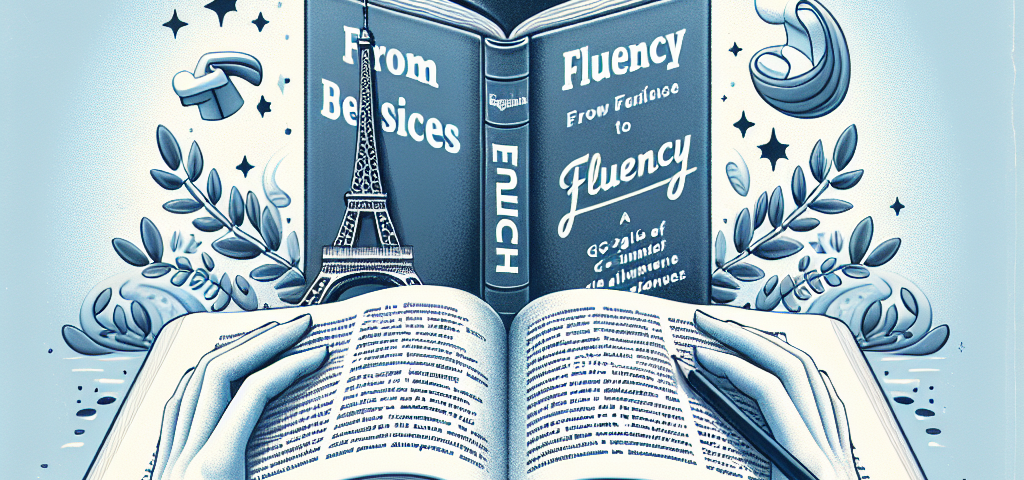
Grammar Meets Fun: Engaging Activities for French Learners
May 26, 2025
Top Online Resources to Enhance Your A-Level French Skills
May 26, 2025
Learning French can be a rewarding experience, especially for students preparing for their GCSE exams. Mastery of the language not only opens windows to French culture, literature, and history but also enhances career prospects in our increasingly globalized world. This guide aims to navigate the complex landscape of GCSE French tuition, ensuring students progress effectively from basic phrases to fluent conversation.
Understanding the GCSE French Curriculum
Before embarking on your French learning journey, it’s essential to grasp the key components of the GCSE curriculum. The course typically covers:
- Listening: Comprehending spoken French in different contexts—conversations, public announcements, and media.
- Speaking: Engaging in conversation, expressing opinions, and discussing various topics with clarity.
- Reading: Understanding written texts, including literature, advertisements, and informational articles.
- Writing: Crafting coherent texts in French, from short sentences to full essays.
Familiarity with these components will guide your study focus and time management.
Setting Clear Goals
Establishing clear, achievable goals is fundamental to effective learning. Whether it’s mastering vocabulary related to everyday activities or tackling complex grammatical structures, setting milestones helps maintain motivation. Use the SMART criteria—Specific, Measurable, Achievable, Relevant, Time-bound—to create a study plan.
Effective Study Techniques
-
Immersive Learning
- Use Language Apps: Incorporate apps like Duolingo or Babbel into your routine to improve vocabulary and grammar. These apps make learning interactive and fun.
- Watch French Films and Listen to Music: This exposure helps improve listening skills and familiarizes you with different accents and colloquialisms.
-
Practice with Native Speakers
- Engage in conversation with native French speakers, either in person or through language exchange platforms like Tandem or HelloTalk. This real-world practice can vastly improve fluency and confidence.
-
Structured Lessons
- Enroll in a tuition program that offers structured lessons tailored to the GCSE requirements. Consider hiring a tutor who can provide personalized feedback and guidance.
- Group Study
- Form a study group with peers who are also preparing for their GCSE French. Collaborative learning can enhance understanding and retention of language concepts.
Resources for Enhancing Learning
- Textbooks and Workbooks: Invest in GCSE-focused textbooks, such as "AQA GCSE French" or "Edexcel GCSE French," which provide practice exercises relevant to exam formats.
- Online Resources: Websites like Quizlet, BBC Bitesize, and the French version of Anki can offer additional practice and flashcards to strengthen vocabulary.
- Grammar Guides: Understanding grammar is crucial for writing and speaking accurately. Resources like "Easy Grammar" or "Collins Easy Learning French Grammar" are recommended.
Regular Assessment and Feedback
Regular self-assessment is vital to track progress. Take practice exams or complete online quizzes to identify strengths and areas for improvement. Additionally, obtaining feedback from teachers or volunteers can provide valuable insights.
Building Fluency Beyond Basics
As students progress, it’s important to move beyond basic phrases:
- Engage with French Literature: Start with simple novels like "Le Petit Prince" by Antoine de Saint-Exupéry to improve reading comprehension.
- Write Essays: Practice writing essays on various topics, focusing on structure and argument development. Tools like Grammarly can help with writing correctness.
- Explore Cultural Contexts: Understanding the cultural context of the language enhances comprehension and appreciation. Watch French documentaries, read about French history, and understand social norms.
Preparing for Exams
As exams approach, focus on revision techniques that reinforce learning:
- Past Papers: Regularly practice using past GCSE papers to familiarize yourself with the exam format and types of questions.
- Revision Timetable: Create a revision schedule that allocates time for all four components of the exam—listening, speaking, reading, and writing.
- Mock Exams: Organize mock exams in a stress-free environment to build confidence and time management skills.
Conclusion
From mastering basic vocabulary to achieving fluency, effective GCSE French tuition involves a comprehensive approach integrating structure, immersion, and ongoing assessment. By employing diverse learning resources, seeking feedback, and actively engaging with the language, students can build their confidence and proficiency, paving the way for success in their GCSE French exams and beyond. Embrace the journey, and soon enough, you’ll find yourself not just speaking French, but thinking and dreaming in it, too.

